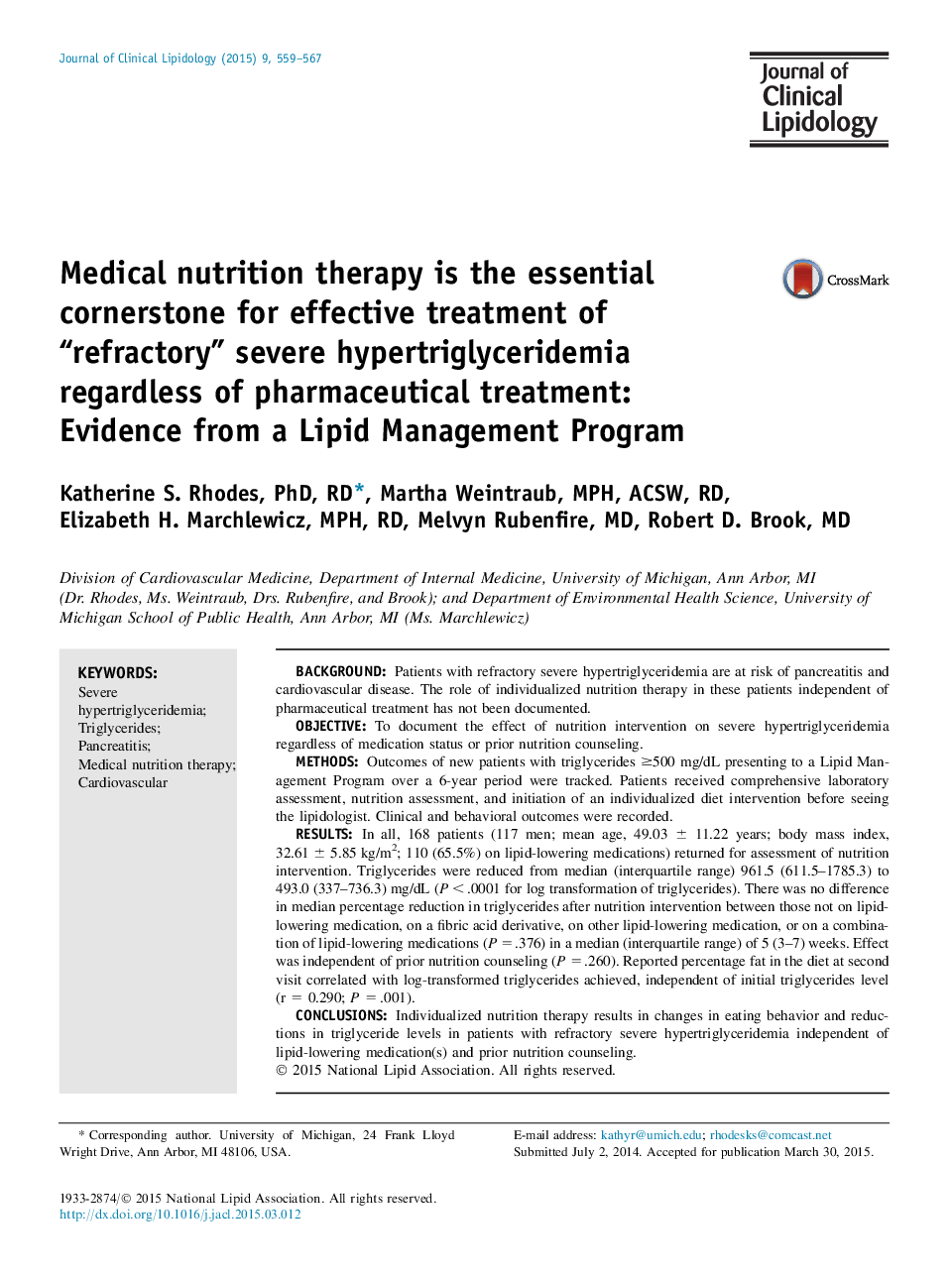| Article ID | Journal | Published Year | Pages | File Type |
|---|---|---|---|---|
| 5985769 | Journal of Clinical Lipidology | 2015 | 9 Pages |
â¢Nutrition therapy reduced triglyceride (TG) 48.8% (â73.3 to â23.2) median (interquartile range).â¢TG reduction with nutrition therapy was independent of pharmaceutical treatment.â¢TG reduction with nutrition therapy was independent of prior nutrition counseling.
BackgroundPatients with refractory severe hypertriglyceridemia are at risk of pancreatitis and cardiovascular disease. The role of individualized nutrition therapy in these patients independent of pharmaceutical treatment has not been documented.ObjectiveTo document the effect of nutrition intervention on severe hypertriglyceridemia regardless of medication status or prior nutrition counseling.MethodsOutcomes of new patients with triglycerides â¥500 mg/dL presenting to a Lipid Management Program over a 6-year period were tracked. Patients received comprehensive laboratory assessment, nutrition assessment, and initiation of an individualized diet intervention before seeing the lipidologist. Clinical and behavioral outcomes were recorded.ResultsIn all, 168 patients (117 men; mean age, 49.03 ± 11.22 years; body mass index, 32.61 ± 5.85 kg/m2; 110 (65.5%) on lipid-lowering medications) returned for assessment of nutrition intervention. Triglycerides were reduced from median (interquartile range) 961.5 (611.5-1785.3) to 493.0 (337-736.3) mg/dL (P < .0001 for log transformation of triglycerides). There was no difference in median percentage reduction in triglycerides after nutrition intervention between those not on lipid-lowering medication, on a fibric acid derivative, on other lipid-lowering medication, or on a combination of lipid-lowering medications (P = .376) in a median (interquartile range) of 5 (3-7) weeks. Effect was independent of prior nutrition counseling (P = .260). Reported percentage fat in the diet at second visit correlated with log-transformed triglycerides achieved, independent of initial triglycerides level (r = 0.290; P = .001).ConclusionsIndividualized nutrition therapy results in changes in eating behavior and reductions in triglyceride levels in patients with refractory severe hypertriglyceridemia independent of lipid-lowering medication(s) and prior nutrition counseling.
